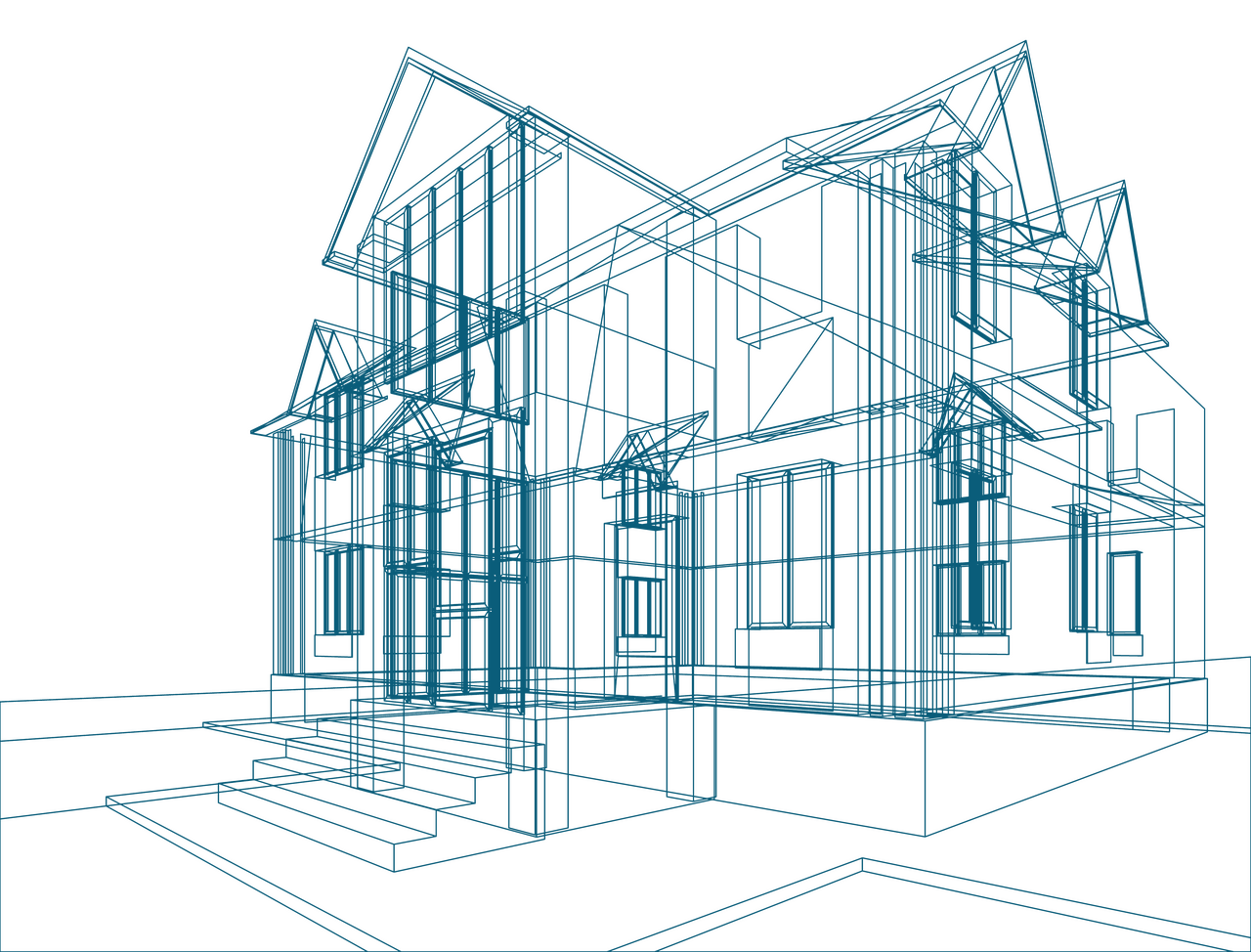

Market report
Contractor Insights & Market Performance
The Contractor Monitor provides in-depth research on how European contractors evaluate brands, product quality, and service, impacting satisfaction and loyalty.
Blogs I published 30 April 2025 I Dirk Hoogenboom
Data-Driven Decision Making: How Market Research Helps Construction Companies Stay Competitive
You’re bidding on a big construction project, confident in your experience and prep. But then a competitor swoops in with a better proposal, one more aligned with current market demands, priced competitively and backed by an exhaustive take you didn’t have. How? What are they doing right? Most likely, market research.
More and more professionals are relying on data-driven decision-making because they need a clear view of the playing field to anticipate demand, understand customers and simply stay ahead. Whether you’re a contractor, developer or supplier, market research data helps you make informed choices that strengthen your construction business strategy and secure a competitive advantage. Let’s break down how it all works.
Understanding Market Research in Construction
Construction looks like pouring concrete and planting steel beams from afar, but behind the curtain, it’s a business. And in business, companies that best understand the market are the ones that thrive. If you’re not paying attention to industry trends, customer behavior and competitor moves, you’re operating blind. How can DDDM help?
Definition of Market Research
Market research is collecting and analyzing information in order to make strategic decisions. That means no gut feelings, assumptions or improvisation, just facts backing your every step. It tells you where to look and guides you through demand, client preferences and current trends.
Types of Market Research
Primary Research: Surveys, Interviews, Focus Groups
If you want real insights, talk to real people. That’s called primary research – gathering firsthand data through several channels. Surveys can tell you what clients love and hate about working with construction companies. Interviews with suppliers, contractors or other experts help you see the shifts before they become mainstream. Focus groups buy you time and allow you to pivot with methods, approaches, services before you fully commit to them, so you know roll-outs are in sync with the overall market state.
Secondary Research: Industry Reports, Competitor Analysis, Government Data
You don’t have to start from scratch. There’s a lot of material out there, you just have to know where to look. Think industry reports that highlight construction industry trends, so you’re not the last to adopt new practices. Or competitor analyses that pinpoint what others are doing right. Also look out for government data on regulations, funding and economic forecasts to get perspective.
How Construction Companies Use Market Research
Spotting Industry Trends
Trends don’t wait for anyone, but they also don’t pop up out of nowhere. Sustainable materials, prefab, labor shortages or client orientation all had a clear trajectory before they showed up. Noticing the shift then meant keeping an eye on where the industry was at that point and adapting to the curve before you were forced to. It still does.
Understanding What Clients Actually Want
Client expectations change on the fly, but with the right market research, you won’t be caught off guard. The insights gathered from customer feedback can help you understand what clients are truly looking for, whether it’s faster turnaround times, green building solutions or a more personalized service. Instead of guessing, you know exactly what to deliver.
Analyzing Competitor Strategies
Keeping track of what competitors are up to helps you stay on top. For example, if you see your competitors improving marketing or adopting new tech, you can follow suit (or outdo them) and differentiate your services. Competitor analysis helps you identify good practices, as well as where they’re falling short, giving you a chance to outperform.
Forecasting Future Demand
The earlier you can anticipate demand, the better positioned you’ll be when the time comes. Look at everything you possibly can – like local government reports, specialized reports, topic-specific news articles, zoning changes or upcoming infrastructure projects. If you notice a surge just in time – meaning, alongside everyone else – you’re probably too late.

Why Market Research is Important for Construction Companies
Because you wouldn’t break ground without knowing what’s happening underneath. So why make business decisions without knowing all there is to know? Let’s look at the key benefits of market research.
1. It Uncovers Growth Opportunities
By looking at reports, competitor strategies and local demand, you can spot regions or project types that are heating up. If you see a nearby city booming, get in front of it. Set up your marketing or even open a new office there. Chances are you won’t be the only one eyeing that opportunity, but if you act fast – you can be the first to actually seize it.
2. It Reduces Risk
There’s always risk in construction, but market research helps you lower it. You can’t just wander headfirst into whatever’s coming your way. By studying material costs or labor availability, you can predict potential issues and avoid them. Say you know prices for steel are going to jump – lock in your prices with suppliers early. This way, you avoid surprises that could eat into your margins.
3. It Gives You a Competitive Edge
Beating your competition means knowing what they’re doing – or what they aren’t. Keep tabs on their pricing, service offerings and marketing. If they’re slow to adopt new tech, like AI or 3D printing, maybe you can get the jump on it. Offering new solutions early makes you the go-to choice.
4. Enhances Customer Satisfaction and Loyalty
Happy clients are loyal clients. Simple as that. Ask for feedback after each project and use it to improve. If they want more communication, implement weekly updates or regular check-ins. The more you meet their expectations, the more likely they are to come back or refer you to someone else.
5. Increases Profitability and Efficiency
Market research clearly shows if you’re making money or bleeding it. Take a good look at past projects and figure out what actually works. If certain types of jobs are more profitable, double down on them. If you’re wasting money on inefficiencies, fix them. Whether it’s trimming waste, fine-tuning pricing or streamlining operations, this data helps you get more out of every project and keep your profits up.
How to Implement Market Research in Your Construction Business
Market research is only useful if you know how to apply it. Here’s how to make data part of your construction business strategy:
1. Get Clear on Your Goals
What’s the endgame? More revenue? An expansion? Cutting costs? Improved efficiency? Attracting clients? Whatever your business objective is, make sure your research gives you the exact knowledge you need to hit those goals.
2. Analyze and Apply the Data
Data is useless when it isn’t actionable. Look at trends, spot gaps in the market and outline concrete steps. For example, if you see a trend in sustainable building, your action plan should include specific steps to train your team, source materials and market those new capabilities.
3. Adapt Based on Market Insights
Construction isn’t static, your strategy shouldn’t be either. So stay on your toes. Establish a monitoring routine and use fresh information to refine operational, marketing or service strategies. This means being ready to pivot based on real-time market changes.

Conclusion
Without clear takes, your business strategy becomes wishful thinking. You risk wasting resources on the wrong projects, missing out on emerging opportunities or worse – getting blindsided by shifts in the market. Every decision counts, and relying on outdated methods is a quick way to fall behind.
DDDM informing your every decision helps you identify construction industry trends, understand what clients actually want and keep a close eye on the competition – giving you the competitive advantage you need to stay ahead.
If you’re serious about growth and long-term success, stop playing it by ear. Build a smarter, more strategic path forward, and give your business the edge it needs to thrive.
Construction Consulting Services for You
We provide tailor-made market research and off-the-shelf reports, both B2B & B2C, qualitative and quantitative. Here are some you might be interested in
Monitor and improve client relationships to drive loyalty and repeat business in construction.
Map out key interactions and pain points to refine the overall construction experience.
Identify the aspects of service or product that most impact satisfaction in construction projects.





